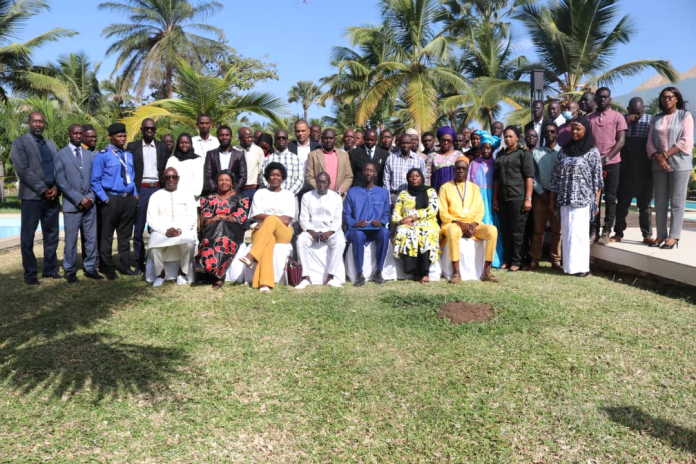By Kebba Secka
The food safety and quality authority (FSQA) yesterday Thursday 12th January 2023, gathered with stakeholders to validate a national policy document in a bid to have a national food safety policy document for the first time. FSQA as an Act of Parliament, came into being in 2011 while operating since 2020, without a national policy document to guide and control its mandate of promoting and evaluating food quality and safety in the Gambia. The absence of having a national policy is viewed to have created a deficiency in their oversight functions, as a result of which a national policy document was drafted and stakeholders were gathered for its validation.
Speaking at the opening ceremony of the said gathering, Mamudou Bah, director general of FSQA, underscored the importance of having a policy document that will enhance the work of his institution.
“When I came in 2020 as the director general at food safety and quality authority, part of my challenges were these kinds of documentation to guide a direction. To start up, I needed to have a National Policy Document and I am glad the dream is coming true as we gather to validate this milestone achievement not only for FSQA but for the entire country,” said Mamudou Bah. He added that the objective of having a National Policy document will strengthen the efficiency of FSQA because the domain is diverse and requires harmonisation from various institutions in enforcing food safety laws and regulation. Bah also said the policy will also help to maintain a robust monitoring system and empower FSQA to promote inter-institutional collaboration.
“The next step is to initiate a National Strategic plan that will operate parallel to the National Food Safety Policy,” Bah said.
Meanwhile, the head of the European Union delegation to the Gambia Lumana Kamashi, said the EU is committed to support the project. “Ensuring food safety and quality assurance is a matter of must and not an option,” Kamashi said. She expressed the importance of access to market to ensure that the food we consume is produced locally to enhance its safety and quality.
To attain this, Kamashi said it requires political, social, legal and national recognition. She said the FSQA Act of 2011 and its structure of operation is a manifestation of political commitment.
“A national policy is a deliberate system of principles that guide future activities in a particular field, and signals political commitment hat will put the country in a right shape,” Kamashi said, adding that this is essential for developing national services.
A representative of United Nations Industrial Development Projects (UNIDO) under West Africa’s Consumer Competitiveness Program Saikou Suwareh Jabai, hailed the success of the partnership between FSQA and UNIDO WACCOP. He thanked the EU for their continued support in all the processes that were undertaken to finally develop a food safety and quality document.
“The establishment of food safety and quality authority is pivotal in ensuring the safety of national food supplies as well as food products for regional and international trade. The development and validation of this national food safety policy is an essential component of the Gambia’s efforts to attaining an effective food safety and quality system,” said Saikou Suwareh Jabai.
The project is funded by EU, UNIDO under West Africa Consumer Competitiveness Program (WACCOMP), World Health Organisation supported FSQA in updating and funding the final draft of policy document.


















